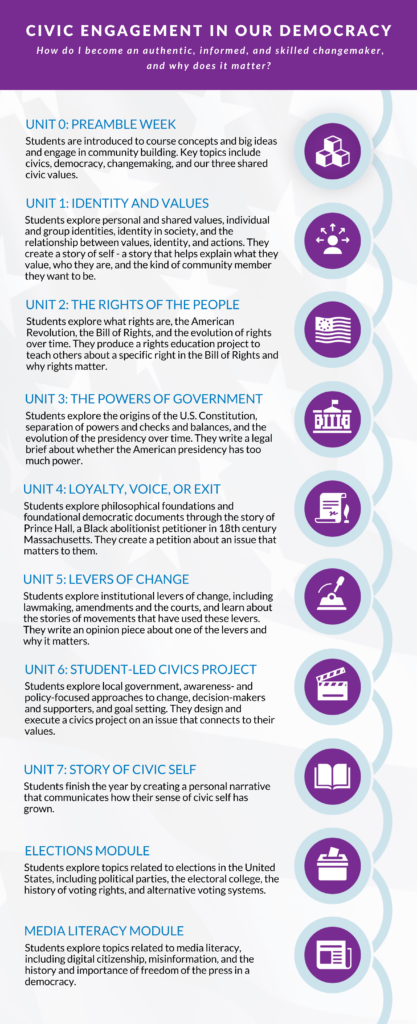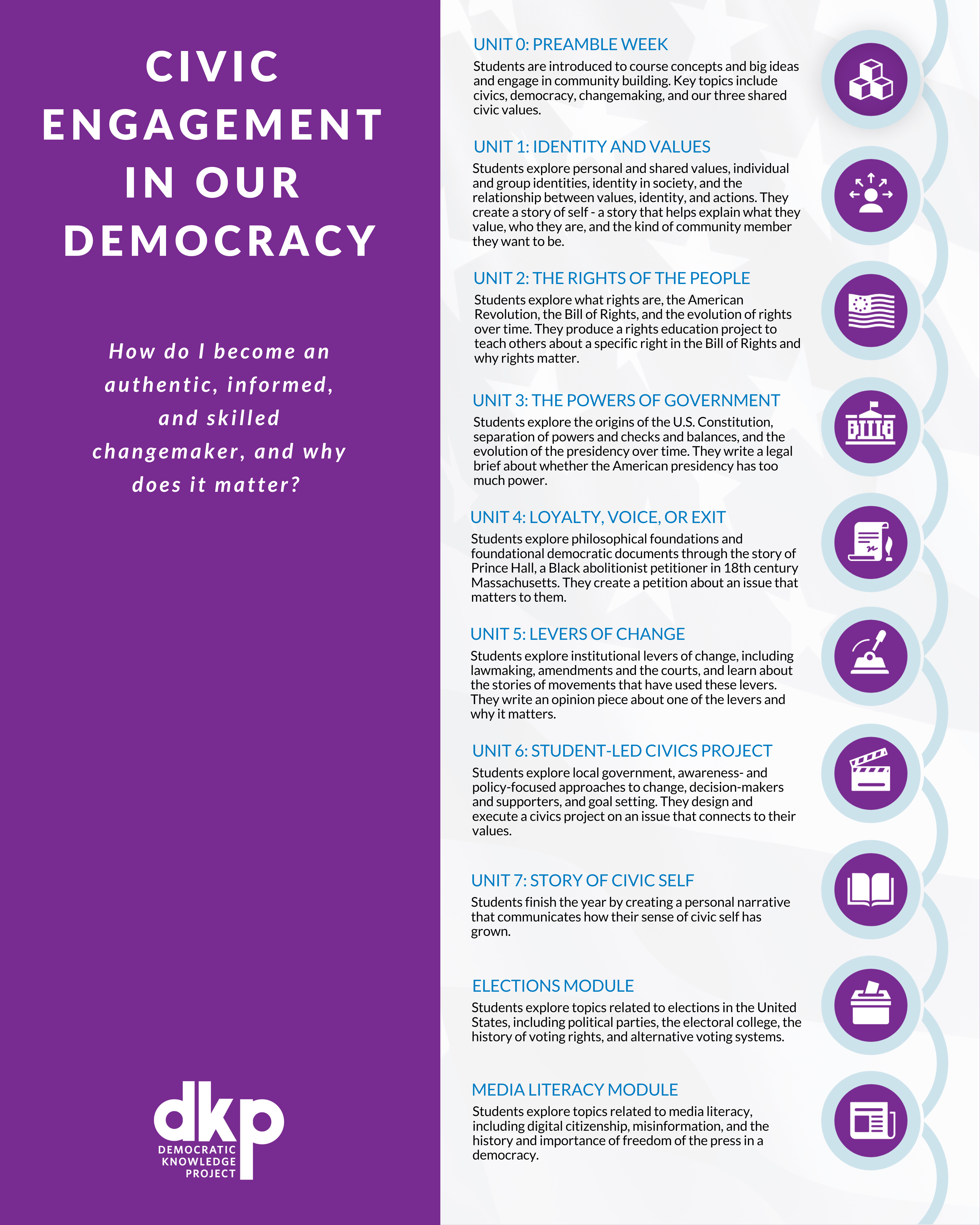8th Grade Curriculum
ABOUT Civic Engagement in Our Democracy:
Civic Engagement in Our Democracy is a yearlong, eighth-grade civics curriculum that seeks to help students identify what they value, deepen what they understand, and develop what they can do to be self-caring, reciprocal, and self-confident changemakers. Co-designed over the course of five years by Massachusetts educators and researchers at the Democratic Knowledge Project, Civic Engagement in Our Democracy is a free open-access educational resource that is aligned with the Massachusetts History and Social Science Framework and the Educating for American Democracy Roadmap. The MA Department of Elementary and Secondary Education recognized Civic Engagement in Our Democracy as the highest ranked of several comprehensive core civics materials that met DESE’s standards for high quality. For more information about Civic Engagement in Our Democracy, here are some frequently asked questions and responses.
The full curriculum is now available free and open-access!

